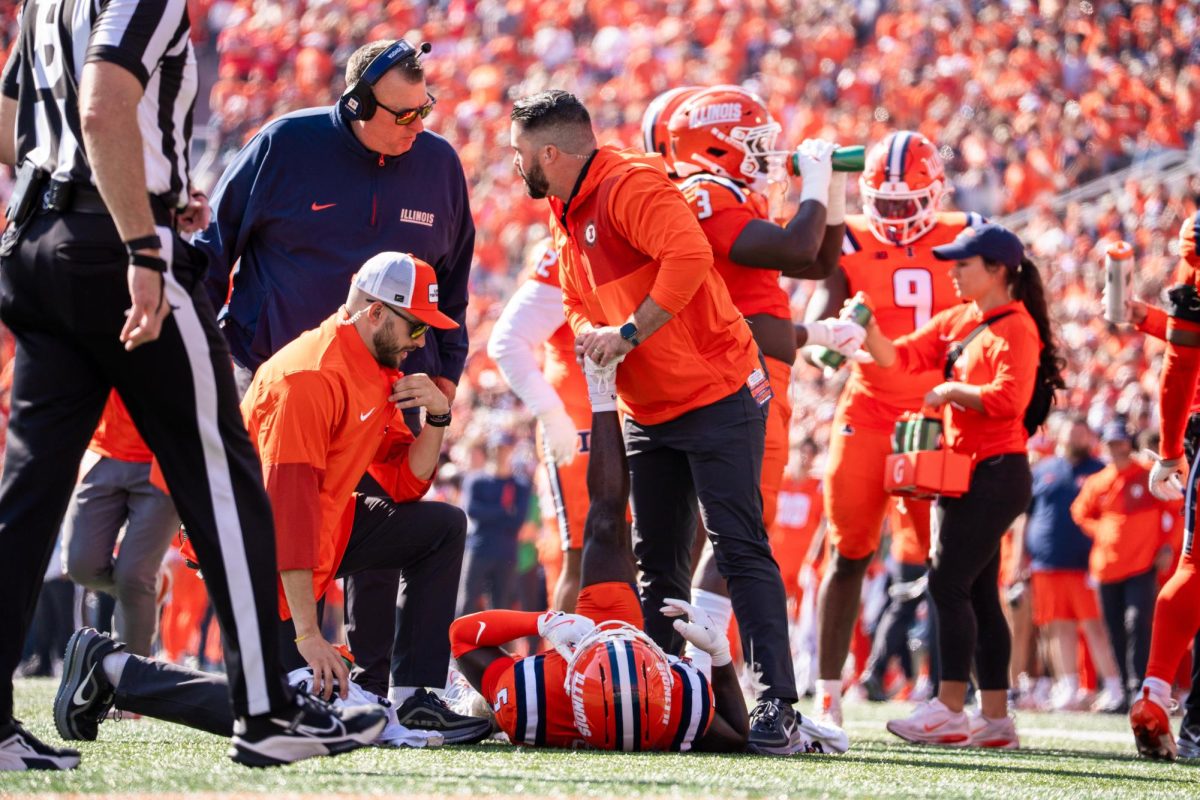After becoming bored with the biology involved in pre-medicine, uninterested in organic chemistry and apathetic toward accounting, Julia Henninger, senior in LAS, began pursuing her fourth and final major: classics.
“College was really hard for me in the beginning because I liked too many things, and I wasn’t bad enough at any of them to let it hold me back,” Henninger said. “I got through everything well enough that I was going in too many different directions.”
Three majors later, Henninger said her broad range of interests led her to classics, a major that allows her to deal with several different time periods and subject matters, including language, art, history, literature and politics.
Kirk Sanders, associate professor in classics, described the major more specifically as an intensive study of both ancient Greek and Latin language and culture. While students in classics are well-versed in both languages by graduation, they choose one to specialize in during their time as undergraduates.
The study of classics was written into the Morrill Land-Grant Acts, the legislation that allowed the creation of the land-grant universities, including the University of Illinois. It granted federally-controlled land to states for the purpose of agricultural and mechanic education. While hands-on studies were promoted, it was specifically stated that classical studies should also be taught.
Get The Daily Illini in your inbox!
The classics major resides in the University’s classics department, which was established in 1905. Today, the department consists of only seven core faculty members and a few visiting professors. Similarly, there are very few students in the department, which offers four majors in addition to classics: Latin, Greek, classical archaeology and classical civilizations. Only one classics major graduated in December, and an additional three will graduate in May, Sanders said.
Henninger said as a classic major, she’s often asked by her peers why the major exists.
“I’ve always said I think it’s good for the soul,” Henninger said. “It’s more of a philosophical approach to learning.”
Antony Augoustakis, associate professor in classics, added that studying the mechanisms of ancient civilizations help people to better understand how and why their lives function as they do.
“Studying classics helps us understand our culture today, our thought, our civilization, how we live, how we’ve changed,” he said. “And also how we have not changed in many ways.”
Sanders agreed with Augoustakis, and added that classics provides students with a variety of career choices because of the critical, analytical, verbal and writing skills they learn through the program’s curriculum.
The classical studies encompass so many different subject matters that Sanders said makes it an ideal major for students planning to continue their education past a bachelor’s degree. He noted that many undergraduate classic majors become high school Latin teachers, those who don’t usually attend some type of graduate school.
According to Sanders, research has revealed that classics majors are among the highest scorers on the Graduate Record Examination and the Law School Admissions Test across the country. Classics majors also have a high acceptance rate to medical school, he said.
“Our classic majors have continued their educations in philosophy, religion, history, Greek, law school, seminary, ministry and things like that,” Sanders said. “In the recent past, we’ve had students go to business school, medical school and law school.”
Augoustakis, who also serves as the director of classical graduate studies, said there are about 20 graduate students in the University’s classics program, which is unique because of its exclusivity. Because of this, every student receives a full scholarship.
Henninger, who will attend the University of Kansas next fall for graduate school, is pursuing her master’s degree in classics and plans to become a professor at the university level.
“Realistically, you’re not going to walk into a Fortune 500 (company) and say, ‘Yo, I’m a classics major,’” Henninger said. “So the best plan … is to go into classics or go on to graduate school, but your options are pretty open. If you’re having a hard time figuring out exactly what you want to do and you like going to school, classics is an excellent major for you.”
Bailey can be reached at [email protected].





